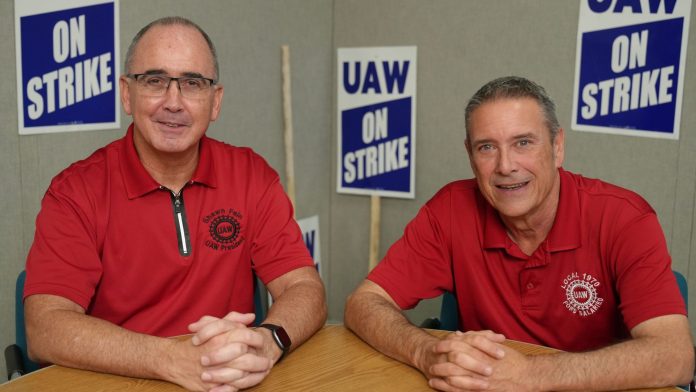On the evening of October 25, Ford and the United Auto Workers (UAW) union announced they had reached a “historic” tentative agreement to end a 41-day strike targeting the automaker.
The deal includes a 25% increase in base pay through April 2028 and will raise the top pay from $32.32 an hour to more than $40 an hour. Starting wages will also increase to more than $28 per hour throughout the contract.
Upon ratification, employees will immediately receive an 11% pay increase.
According to the union, other benefits include cost-of-living adjustments and a three-year timeframe reduction for new hires to reach the top wage scale instead of the previous eight years. Additional benefits included in the agreement are for workers with pensions, 401(k) plans, and current retirees. It also consists of a right to strike over plant closures, a first for the union.
UAW President Shawn Fain said, “We made history. We told Ford to pony up, and they did.” Also, in a video message delivered with union Vice President Chuck Browning, the head of the Ford department, Fain said, “This agreement sets us on a new path to make things right at Ford, at the Big Three, and across the auto industry. Together, we are changing the course of history in this country for the working class.”
Professor of management and labor studies at Wayne State University, Marick Masters, said that the UAW is making “Significant progress toward achieving their goals based on the information the union released.” Yet, a thorough evaluation of the deal will only be possible after all the facts are known, including contentious issues such as union representation for employees of joint venture battery plants.
Still, Fain emphasized that the rank-and-file members will ultimately decide whether or not to approve the agreement: “We are sending this contract to you because we are aware that it breaks records. We are certain it will alter lives. But what happens after that is up to each of you.”




